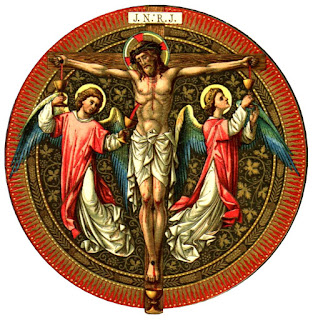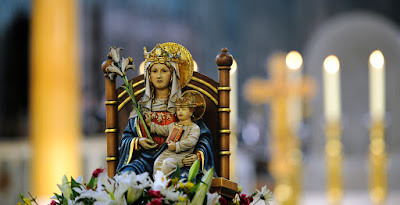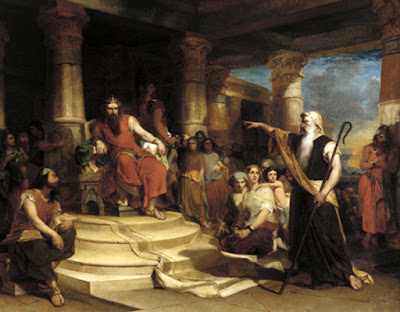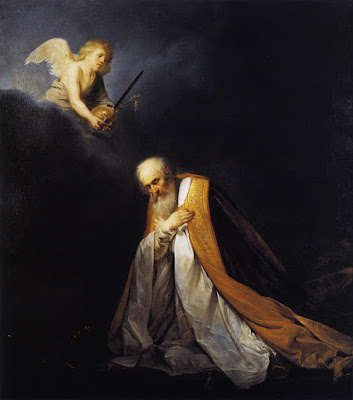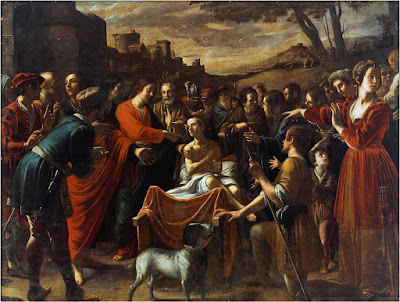Sunday, 17 July 2016
July: the month of the Precious Blood
July is the month when Catholics traditionally have a devotion to the Precious Blood. The spilling of this blood is the root of our salvation and each week in July one of our hymns will mention the Precious Blood. Watch out for them.
Walsingham association
Thank you to all who supported the inaugural meeting of the Reading Branch of the Walsingham Association yesterday.
A link to the Walsingham association site can be found here, as well as in the right-hand sidebar. One of the things we learned yesterday was the role of the new media in encouraging pilgrimage and increasing the national profile of the shrine. In particular, you can find broadcasts of Masses on their youtube channel here, or follow their latest developments on social media via their twitter feed or facebook page.
The Roman Catholic Shrine in Houghton St Giles, Walsingham
We conclude with this elegant hymn to Our Lady of Walsingham.
16th Sunday of the Year
Christ in the House of Martha and Mary, Erasmus II Quellin
Rublëv's Icon of the Trinity
Friday, 1 July 2016
13th Sunday of the Year
This Sunday's Gospel begins Luke's unique account of Jesus' long journey to Jerusalem (9:51 - 19:17). Jesus' fateful trek begins in a solemn way; Luke introduces the section with the portentous phrase, "As the time approached when Jesus was to be taken from this world, he firmly resolved to proceed toward Jerusalem . . ." (9:51). For Luke, Jesus is beginning his "exodus," his divinely prescribed fate to go to Jerusalem to suffer but also enter his glory by being "taken" into heaven (see Luke 24). In the course of his journey, Jesus will teach his would be disciples the requirements of "following" him. The radical demands of being a follower of Jesus are evident in the opening incidents of the journey. Jesus is not received by a Samaritan village which provokes James and John to request, “Lord, would you not have us call down fire from heaven to destroy them.” Unlike the prophet Elijah who did call down fire to destroy his enemies (see 2 Kings 1), Jesus lives out his own teaching on love of the enemy (see Lk 6:2736) by reprimanding his vengeful disciples and moving on to another town.
Three subsequent encounters with would be followers provide Jesus with the opportunity to give proverbs about the cost of discipleship. First of all, the disciples must be willing to abandon their earthly homes, like Elisha in the first reading. "The foxes have lairs, the birds of the sky nests, but the Son of Man has nowhere to lay his head." Jesus' followers also cannot delay the call of the kingdom by waiting to be free of normal family obligations. The man who wants to wait for his father to die before following Jesus receives the challenge: "Let the dead bury their dead; come away and proclaim the kingdom." The final encounter is a direct contrast to Elijah's call of Elisha in the first reading. To the man who wants to take leave of his family at home Jesus says, "Whoever puts his hand to the plough but keeps looking back is unfit for the reign of God." Each of these proverbs should be heard as a call, rather than a reproach. Jesus, who is "firmly resolved to proceed toward Jerusalem" where he will meet suffering and death but also enter his glory, is the model for the disciple's commitment.
Saturday, 18 June 2016
Meeting of the Walsingham Association
The Reading Branch of the Walsingham Association has its inaugural meeting on 16th July at 3pm at St James’ Church.
We will meet in the Barberi Room and we are delighted to be able to welcome David Chapman who is coming over from Walsingham to be with us on this occasion.
This Association is open to anyone but it is an important initiative of the Reading Ordinariate Mission so it is imperative we support this as a group. Please put it firmly in your diaries.
Sunday, 12 June 2016
11th Sunday of the Year
One of the things that religion has to do for us is help us to cope with the fact
that we get things wrong, very often out of sheer selfishness, which leads to
bad choices. Something of that is going on in the readings for next Sunday.
The first reading comes from the lively and unedifying tale of David
committing adultery with Bathsheba and then the murder of her husband
(read it tonight, in 2 Samuel 11). The prophet Nathan does a very brave thing
and traps David by telling, in parable form, the story of what he has done, and
when the tale has aroused David’s anger, points the finger at him, saying “You
are the man”, and pronounces God’s judgement on him, by way of a reminder
of what God has done for him,
“I anointed you King over Israel, I delivered you from the hand of Saul, I gave you your lord’s house, and your lord’s wives as your own, and I gave you the house of Israel and Judah...”. So David is accused of (among other things) rank ingratitude. All is not lost, however, for he is able to say, humbly, to the prophet, “I have sinned”, to which Nathan replies, “The Lord has forgiven your sin – you shall not die”. Now this is not a sycophantic cleric leaping into bed with the politically powerful, for the prophet makes it quite clear to David that he has to be punished (and, as a matter of fact, that he deserves death). So a part of the invitation to us this week will be to recognise that we have indeed made sinful choices, but that at the same time we are dealing with a God who loves us more than we can say, and is ready to forgive.
Thou art the man, Peter Rothermel
“I anointed you King over Israel, I delivered you from the hand of Saul, I gave you your lord’s house, and your lord’s wives as your own, and I gave you the house of Israel and Judah...”. So David is accused of (among other things) rank ingratitude. All is not lost, however, for he is able to say, humbly, to the prophet, “I have sinned”, to which Nathan replies, “The Lord has forgiven your sin – you shall not die”. Now this is not a sycophantic cleric leaping into bed with the politically powerful, for the prophet makes it quite clear to David that he has to be punished (and, as a matter of fact, that he deserves death). So a part of the invitation to us this week will be to recognise that we have indeed made sinful choices, but that at the same time we are dealing with a God who loves us more than we can say, and is ready to forgive.
King David in prayer, Pieter de Grebber
Our latest Newsletter can be found here.
Sunday, 5 June 2016
10th Sunday of the Year
Jesus raises the Widow of Nain's son, Mario Minniti
One of the striking features of the God of Jews and Christians is that ours is a God who cares for those on the margins of society, especially orphans and immigrants and widows. That is what comes out of the readings for this Sunday. In the first reading, a widow who is not of the true faith has just provided food for that slightly alarming figure the prophet Elijah, “the man of God”; then she is apparently rewarded by the death of her son, “there remained no breath [of life] in him”. Not surprisingly, she reproaches him roundly, “What have you and I to do with each other, man of God? Did you come to me to remind me of my guilt, and put my son to death?”
Elijah revives the Son of the Widow from Zarephath, Rutilio Manetti
There is a rather complicated theology lurking here, about what causes evil, but the prophet does not waste time with arguing. Instead he tells her “Give me your son”, and he takes the child upstairs to his room, places him on his bed, and prays to God for the widow, and “stretched himself out three times on the boy and called on the Lord”, and his petition is that God (who is of course responsible for death and life) should not kill the widow’s son. Inevitably God hears his prayer, and the woman recognizes Elijah: “Now I know that you are a man of God”. There is a real sense here that the world has meaning, after all, and that God cares.
Subscribe to:
Posts (Atom)
